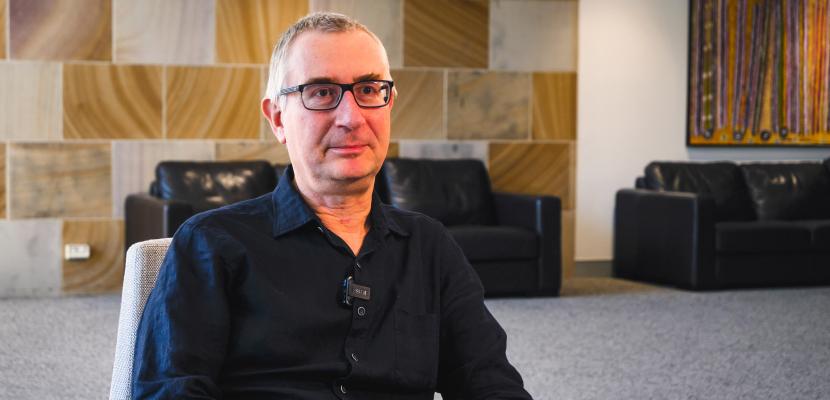
A cure for the western world's leading cause of untreatable blindness could be within reach following research breakthroughs at Bond University.
Age-related macular degeneration (AMD) causes cells in the retina at the back of the eye to die and sufferers gradually lose their sight.
Associate Professor Nigel Barnett of the university's Clem Jones Centre for Regenerative Medicine knows the toll AMD can take.
"My Dad had AMD. It started in his mid-seventies and by his late seventies, early eighties, it was affecting what he could see," Dr Barnett said.
"It was hard knowing what it was and that there was nothing that could be done.
"If you live into your eighties, there's a big chance you're going to get AMD."
Dr Barnett is leading a team which hopes to implant new retinal cells in the eye, restoring vision.
The researchers first developed a new technique for efficiently growing the retinal cells from stem cells.
They then produced a unique artificial membrane which carries the cells and experiments in rats have shown the treatment can stop blindness in the short-term.
"The next step is to make sure the newly-implanted cells survive over the long term," he said.
"We don't want them to succumb to the same issues that killed the original cells.
"We're investigating a number of different methodologies and techniques to do this."
These include:
* Genetically modifying the stem cells so that the retinal cells they produce carry a built-in protection;
* Modifying the membrane to incorporate drugs or other factors that will allow the cells to survive longer;
* Applying drugs directly to the eye to reduce the inflammation and other issues that lead to the death of the cells in AMD.
Dr Barnett said he hoped to begin human clinical trials in 2023.
The research has been funded by the Clem Jones Foundation, the Cutmore Bequest to Bond University, and the National Health and Medical Research Council.